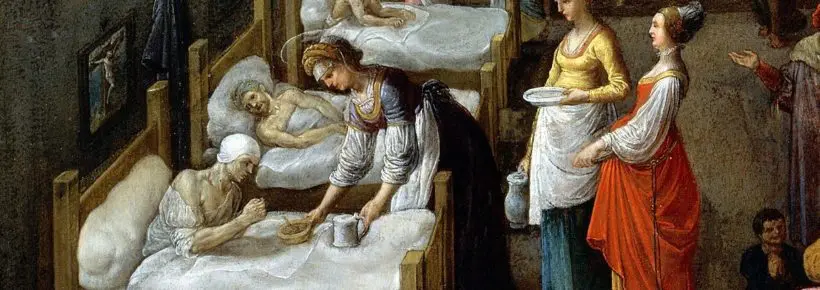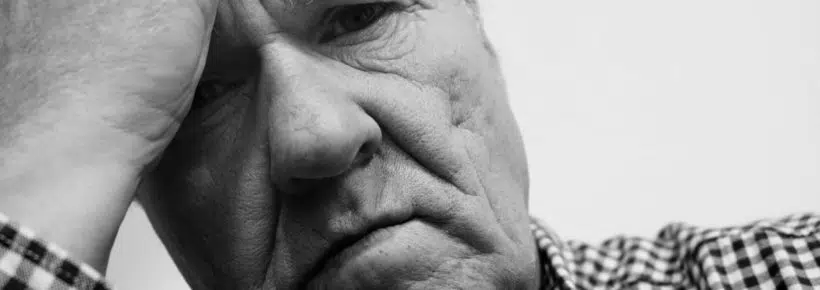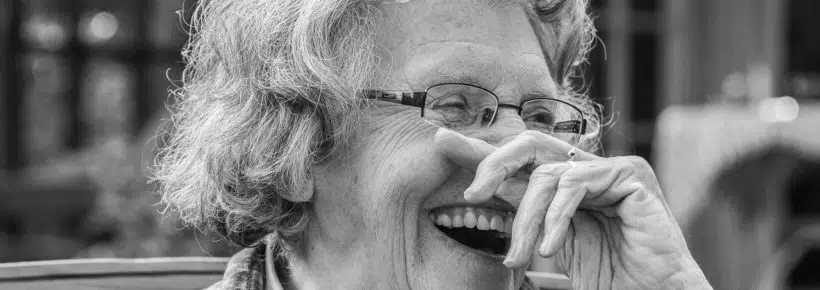In this you rejoice, though now for a little while you may have to suffer various trials, so that the genuineness of your faith, more precious than gold which though perishable is tested by fire, may redound to praise and glory and honor at the revelation of Jesus Christ.
― 1 Peter 1:6‑7
The Mystery of Suffering
Pope St. John Paul II knew about suffering.
His mother, his father and his only sibling (a brother) died before he was twenty. He spent much of his early life under the brutal oppression of both the Nazis and Josef Stalin, under which many of his friends and his extended family members were murdered. When he was sixty, he was shot and gravely wounded by a would-be Muslim assassin, Mehmet Ali Ağca. In his later years, the saint’s Parkinson’s disease crippled him, robbed him of the ability to speak, and even distorted the features of his face. Perhaps most painful of all, he agonized over the series of scandals that racked his beloved Church.
Yet through it all, he remained cheerful and upbeat, and most of the millions of photos taken of him feature his famous smile.
Suffering is a part of everyone’s life. We routinely suffer in all four aspects of our beings: Spiritual, emotional, mental and physical. This pain can be foreseen and anticipated or it can be a sudden surprise, and it takes a galaxy of forms, from accidentally burning ourselves on a stove to seeing a child reject the Faith, and from watching a parent slowly die to worrying over political elections.
There is no escaping pain in this life.
Despite its inevitability, modern society struggles against pain in its futile attempts to ban it from our lives. We place great emphasis on convenience, comfort and the avoidance of trials and suffering. When things go wrong with our jobs, our families or our health, we tend to rage at God or curse our bad luck instead of learning from our experiences and gaining wisdom, strength and insights into life.
Even more fundamentally, we seem to have forgotten that we possess immortal souls made in the image of God ― and the possession of a soul, not merely our higher intelligence, is the fundamental difference between ourselves and the lower animals. Because we have souls, we can receive at least three benefits from suffering.
Purpose of Suffering
#1. Purification
Pope Pius XII asked more than half a century ago, “Is it not such false pity which claims to justify euthanasia and to remove from man purifying and meritorious suffering, not by a charitable and praiseworthy help but by death, as if one were dealing with an irrational animal without immortality?”
In this passage, Pope Pius highlighted the two great intangible purposes of pain: purification and gaining merit.
Anyone who has suffered significant pain for a period of time will find, upon proper introspection, that he has been strengthened by the experience. He realizes that pain is not destructive if suffered for a while, but instead makes him realize that he has the strength to overcome obstacles and fears that may have seemed insurmountable before. This is true for everyone, be they Christian, Jew, Muslim, Hindu, agnostic or atheist.
Of course, severe pain suffered for too long can destroy the strongest of people. This is why the Catholic Church teaches that it is not proper to expect heroic virtue from everyone, and that painkillers may be used at the end of life, even if they lead to semi‑lucidity or a quicker death in some cases.
#2. Gaining Merit
The second great purpose of human pain is the gaining of merit. The very first sentence of Pope John Paul II’s Apostolic Letter Salvifici Doloris (“On the Christian Meaning of Human Suffering”) highlights the constant teaching of the Church in this matter: “Declaring the power of salvific suffering, the Apostle Paul says: ‘In my flesh I complete what is lacking in Christ’s afflictions for the sake of his body, that is, the Church.'”
As the Vatican’s Declaration on Euthanasia tells us:
According to Christian teaching, however, suffering, especially suffering during the last moments of life, has a special place in God’s saving plan; it is in fact a sharing in Christ’s passion and a union with the redeeming sacrifice which He offered in obedience to the Father’s will. Therefore, one must not be surprised if some Christians prefer to moderate their use of pain‑killers, in order to accept voluntarily at least a part of their sufferings and thus associate themselves in a conscious way with the sufferings of Christ crucified (cf. Matthew 27:34).
A certain degree of pain at the end of life allows us to follow Christ all the way to the Cross. It seems inconsistent for some Christians to be willing to suffer various indignities and inconveniences in the name of Our Lord over a period of decades during their lives, and then shy away from complete participation in His ultimate suffering at the point of death.
This certainly does not mean that we have to linger in agony until the very last moment of life, because intense pain itself can distract us during our final preparations. However, we must be able to strike a proper balance in our last hours between full awareness of what is happening to us as we tread the road to our own Calvary and the degree of pain that we can bear.
#3. Personal Transformation
A third benefit of pain is personal transformation. Intense pain often embitters people, but many find themselves drawn closer to God by depending upon Him more, and also realize that, the next time pain strikes, they know better how to face it. Salvifici Doloris explains:
Down through the centuries and generations, it has been seen that in suffering there is concealed a particular power that draws a person interiorly close to Christ, a special grace. To this grace many saints, such as St. Francis of Assisi, St. Ignatius of Loyola, and others, owe their profound conversion. A result of such a conversion is not only that the individual discovers the salvific meaning of suffering but above all that he becomes a completely new person. He discovers a new dimension, as it were, of his entire life and vocation [¶26].
We put dumb animals to sleep because there is no purpose to their suffering. They writhe in misery, ignorant and bewildered, and there can be no learning, no enrichment, no redeeming quality to their ordeals. They cannot face the end of their lives with courage and steadfastness. Our only possible response to their tribulations is to end their suffering as soon as possible.
We must treat dumb animals humanely; but we must treat persons humanly.
Final Thoughts
What animals need in their last days is mercy, but what human beings need is bravery and companionship. Neither is possible if the needle stands ready to “put them down,” if they or others think that real or imagined trials may become too much for them. Additionally, killing someone as soon as they begin to experience significant pain sets a dreadful example of cowardice to others, especially younger people, who will begin to fear pain excessively instead of learning to endure it.
Tragically, the inevitable trend in euthanasia laws in nations that have legalized the practice is from relieving pain to simply ending life because it is inconvenient to others.
Pope Francis has repeatedly condemned our “throwaway culture,” in which anything — including human beings — can be discarded when they outlive their usefulness. In June 2016, he said:
True compassion does not marginalize anyone, nor does it humiliate and exclude — much less considers the disappearance of a person as a good thing. And then there are those who hide behind an alleged compassion to justify and approve the death of a patient. You are well aware of the meaning of the triumph of selfishness, of this ‘throwaway culture’ that rejects and dismisses those who do not comply with certain canons of health, beauty, and utility.
Let us stand by our dying until the end, believing that there is indeed a purpose to suffering.
Related Content
Dr. Brian Clowes has been HLI’s director of research since 1995 and is one of the most accomplished and respected intellectuals in the international pro-life movement. Best known as author of the most exhaustive pro-life informational resource volume The Facts of Life, and for his Pro-Life Basic Training Course, Brian is the author of nine books and over 500 scholarly and popular articles, and has traveled to 70 countries on six continents as a pro-life speaker, educator and trainer.
















Excellent article!
Always we are taught to offer up to God our pain and difficulties. Let God be God who takes our sacrifices and turns them into blessings.